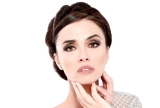You have a brilliant international career throughout Europe and France in particular where you live, where does this close link with this country come from?
I have always been fascinated by the tradition of the organ and organists in France. I arrived in Paris in 2011 for my studies at the Conservatoire, then I worked at Radio France, and at the cathedral in Lille. Read More →
The National Forum of Music is a musical institution, but it’s also a venue – a new complex of four concert halls in Wrocław. A good concert hall for the Wrocław Philharmonic had been talked about for decades. How did the National Forum of Music emerge from these many different plans and concepts?
The story of the NFM began in 2002, when Rafał Dutkiewicz was elected Mayor of Wrocław. The project to build a concert hall was on his agenda. At that time I was his advisor in preparing the programme for culture. Later he hired me as his plenipotentiary – and work began on the construction of the hall. Read More →
Timothy Hopkins’ first instrument was the piano, then he discovered the cello. With a musical home, his curiosity and a little bit of luck in his luggage – as he says himself – he made rapid progress: While he was still going to school, he became a junior student, later completing his bachelor’s and master’s degrees in Leipzig and Berlin. However, the ambitious young artist’s first career steps fell during the lockdown period of the corona pandemic – and put a « good spanner in the works » for Hopkins, as he tells us in an interview. Read More →
Next year you will be celebrating 15 years of your career, yet because of the breadth of your repertoire and the prestige of the theatres in which you sing, it seems that many more have passed: is it already time for a first balance sheet?
Is that so? I had not realized that! Actually yes, a first balance sheet is also useful to remind yourself of the milestones you have reached, how you reached them, if there were any mistakes, to understand if you could have done better so as not to repeat, in the future, errors of judgment. Read More →
There are several pianists who have approached, in the last fifteen years, the curious and provocative pieces and bits from the fourteen volumes of Péchés de vieillesse, old Rossini’s enigmatic musical testament. Marangoni’s is, however, the first truly complete one, extending to all the chamber music and all the vocal pieces (almost all of them recorded with Italian singers), including pieces coeval with the Péchés but not present in the volumes of the official collection, as well as some twenty recently discovered unpublished pieces. Read More →
You have written your first opera, The Snow Queen (2019), at the age of 62. Did you think about making an opera before?
Yes. I had plans to write an opera in 1988, but I never managed to find the right story, and also I hadn’t developed a vocal writing of my own to do something like that. Read More →
Wenn man über Ihre Arbeit spricht, wird oft von Ihrer Fähigkeit gesprochen, « neue Grenzen zu überschreiten ». Sind Sie mit diesem Ansatz einverstanden? Und wenn ja, können Sie uns erklären, welche Grenzen Sie überschreiten?
Der Kontrabass in der Welt der klassischen Musik unterliegt vielen Klischees: Er ist zu tief, um Solist zu sein, er muss begleiten, er hat kein Repertoire. Historisch gesehen hat dieses Instrument immer eine begleitende Rolle gespielt. Wenn Leute, die über meine Arbeit sprechen, davon sprechen, dass sie « bestimmte Grenzen verschieben », berührt mich das sehr, denn es bringt die Dinge voran: Die Wahrnehmung des Kontrabasses ändert sich. Read More →
Was hat Sie dazu bewegt, dieses Projekt in Angriff zu nehmen?
Hinter der Gründung von Opus 100,7 stehen zwei Überlegungen. Einerseits hat es mit der Erkenntnis zu tun, dass die Klassik-Szene in Luxemburg sehr aktiv ist.
Motivierte Musiker und Musikerinnen präsentieren regelmäßig spannende Programme, Konzerte werden über das ganze Land verstreut organisiert und auch international erlangt die Szene eine immer größere Aufmerksamkeit. Dies geht Hand in Hand mit einer fortschreitenden Professionalisierung des Sektors. Dieser Dynamik möchte der Média de Service Public 100,7 gerecht werden, indem er der klassischen Musik mit Opus 100,7 ein neues Zuhause bietet. Read More →
Ermonela Jaho, I would like to briefly go over some of the most important moments of your professional life. I read somewhere that as a child you wanted to be a pop singer. Is that true?
Yes, it is true. When you’re a child that is the music that impacts you the most and you want to become famous immediately, those dreams start that way, as a game. So it started like that but after that I realized my soul belonged to classical music. Read More →
Frau Petrychenko, schon seit Jahren setzen Sie sich sehr dafür ein, dass die Klaviermusik Ihres Heimatlands, der Ukraine stärker wahrgenommen wird. Nun hat der russische Angriffskrieg auf die Ukraine, also ausgerechnet ein sehr trauriger Anlass, dazu geführt, dass die Musik ukrainischer Komponisten tatsächlich stärker wahrgenommen wird. Ich könnte mir vorstellen, dass das bei Ihnen sehr zwiespältige Gefühle auslöst?
Das stimmt. Nach meinem Studium habe ich angefangen, ukrainische Musik in meine Konzerte zu integrieren. Schon damals habe ich festgestellt, dass diese Musik hier total unbekannt ist. Es ist schwer, Noten oder gute Aufnahmen zu finden. Das hat mich traurig gemacht und ich wollte es unbedingt ändern. Read More →






























